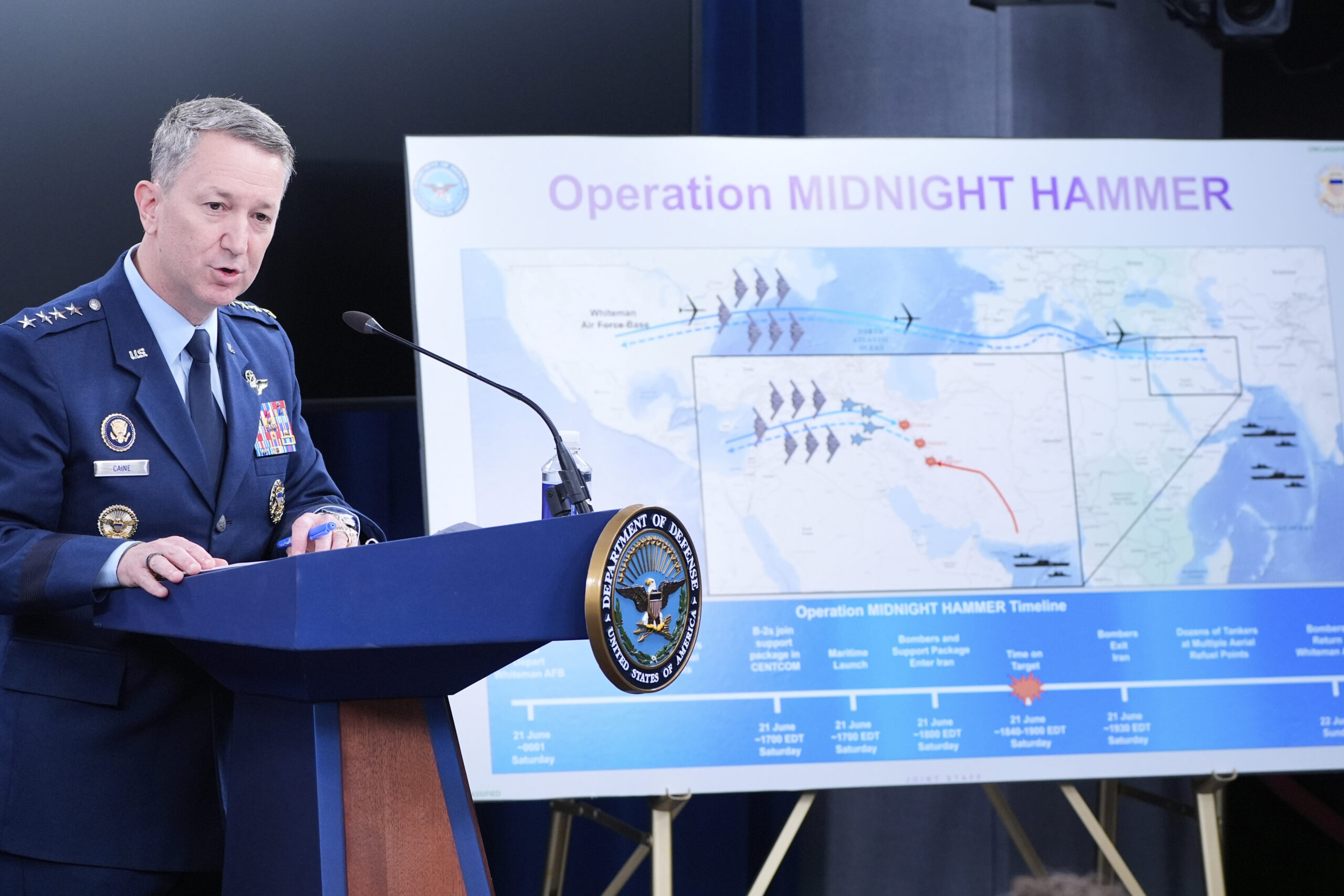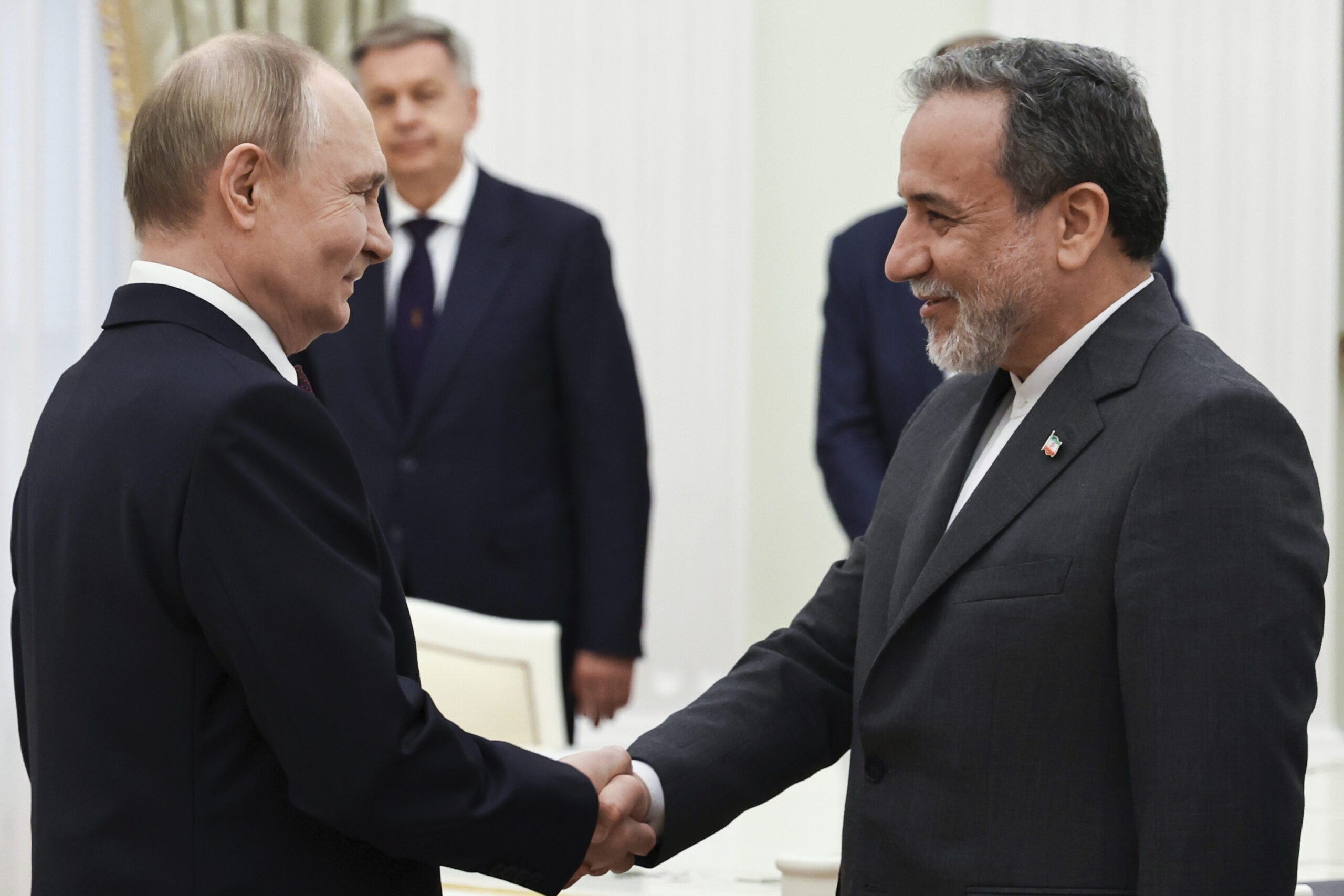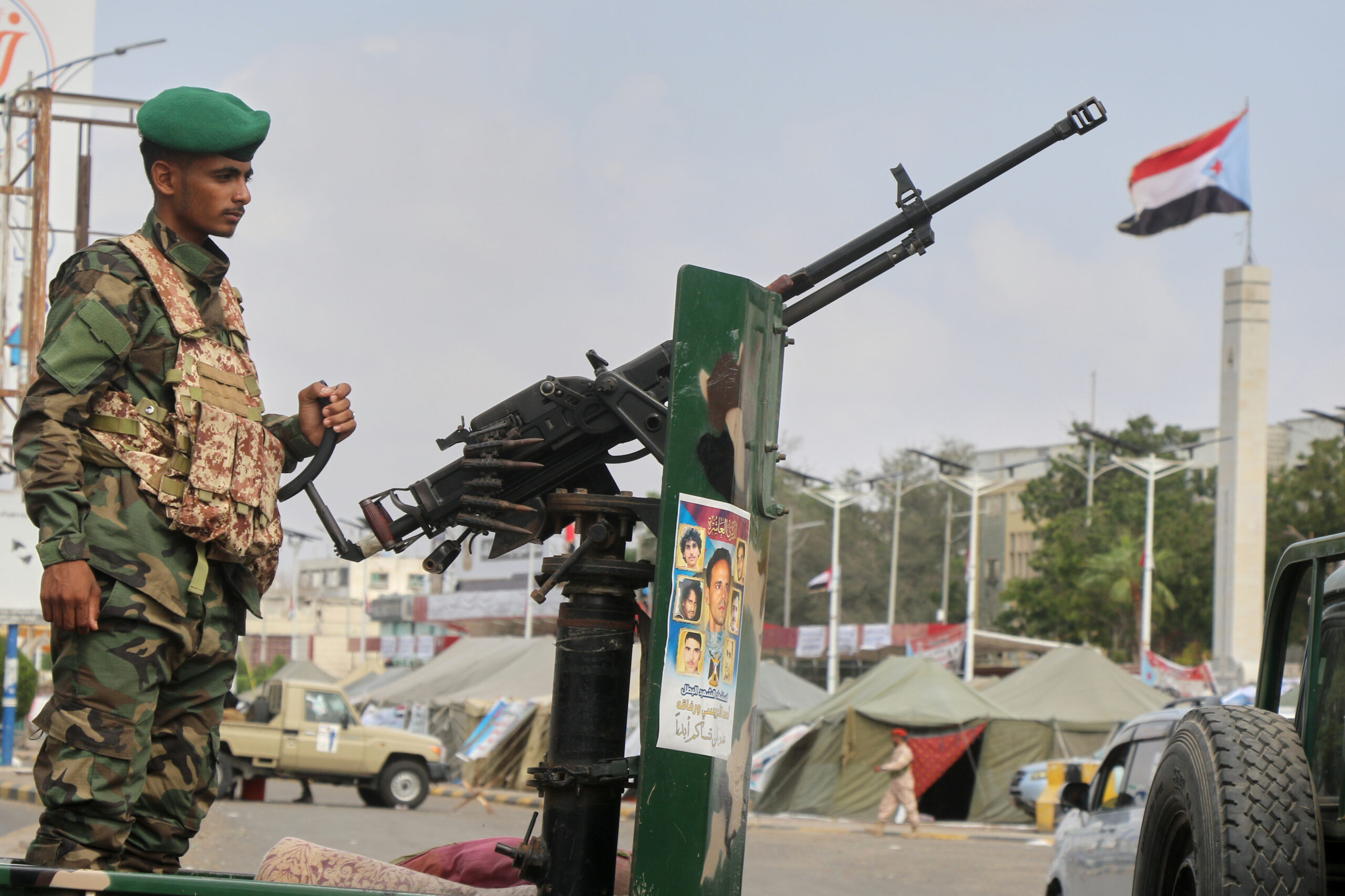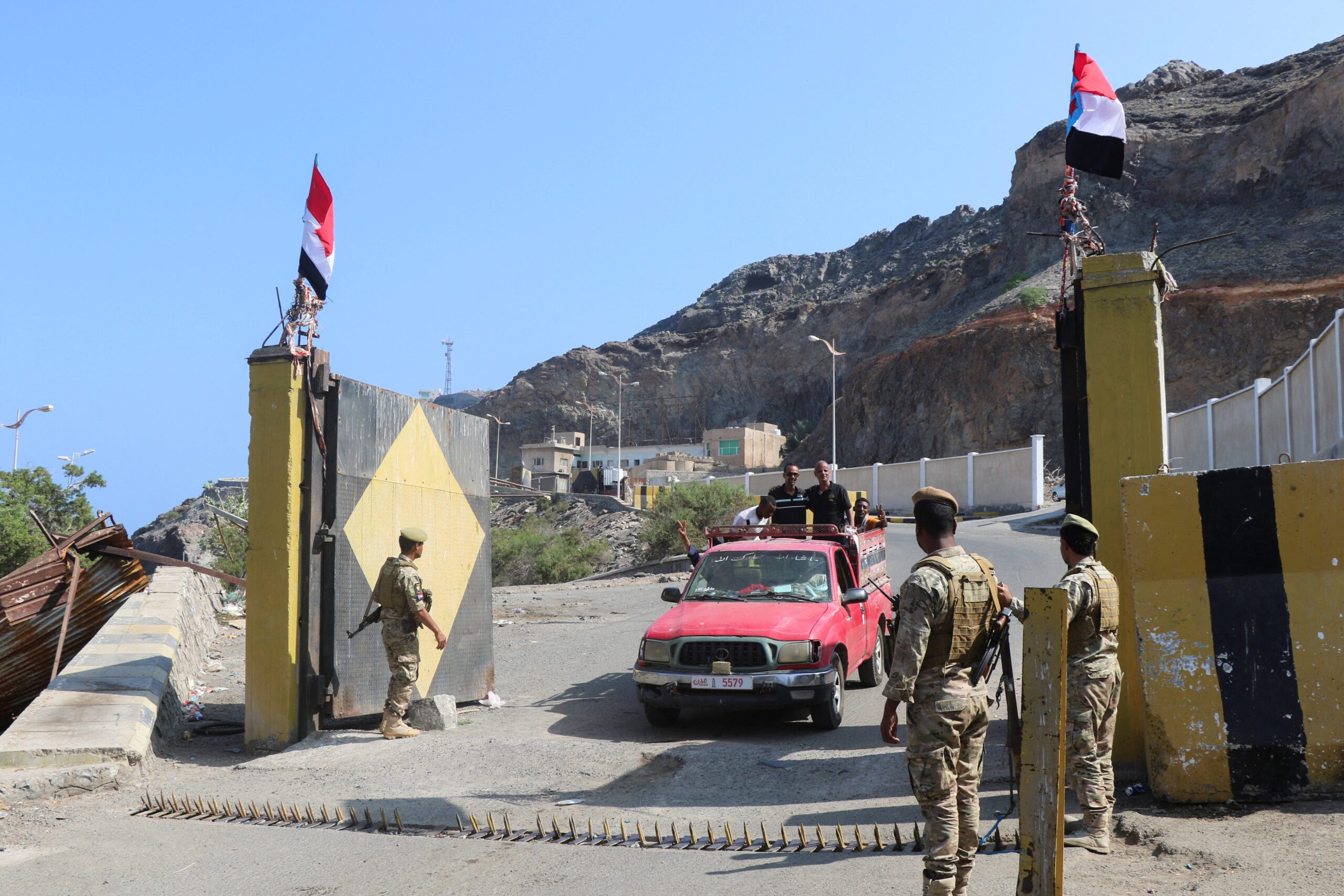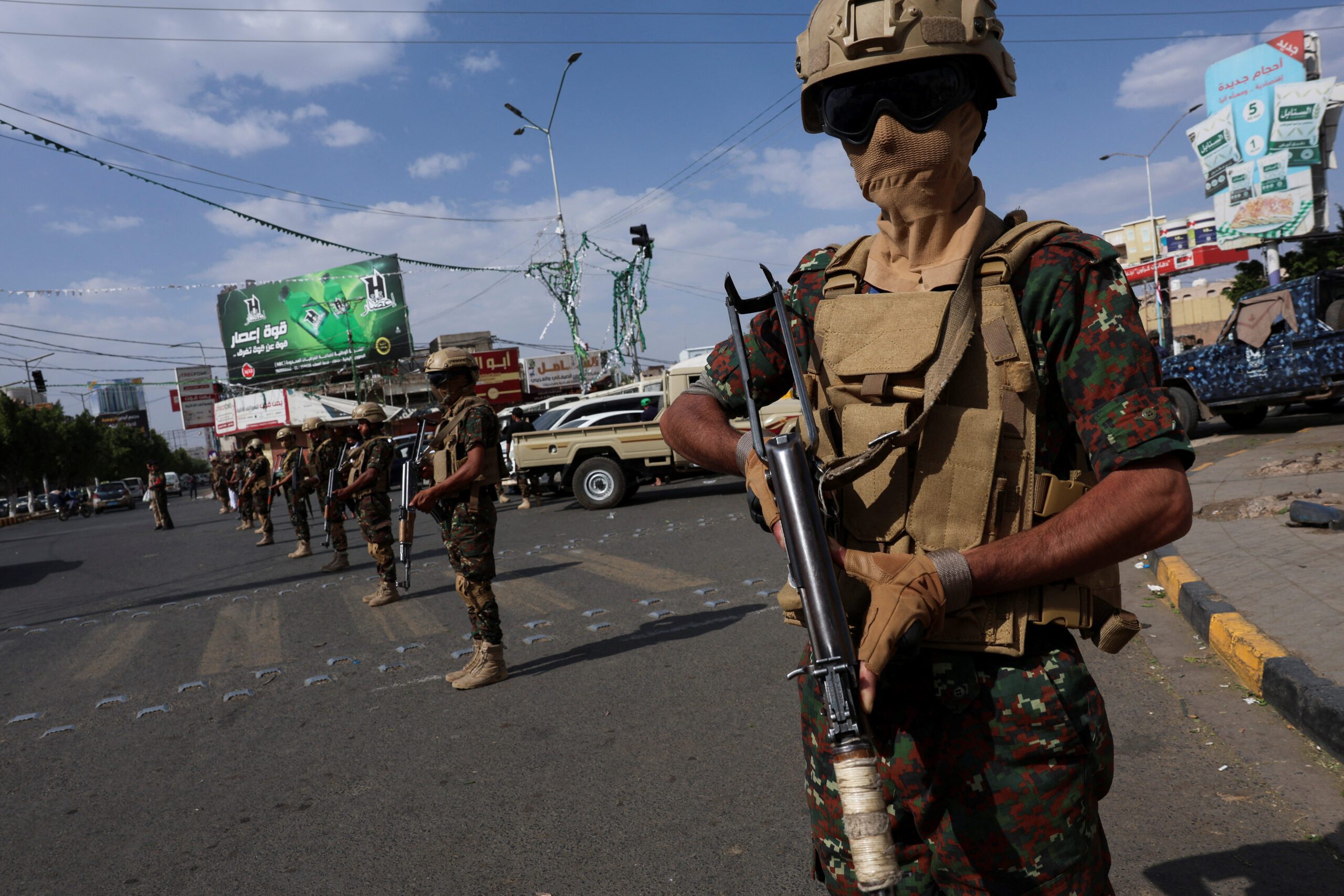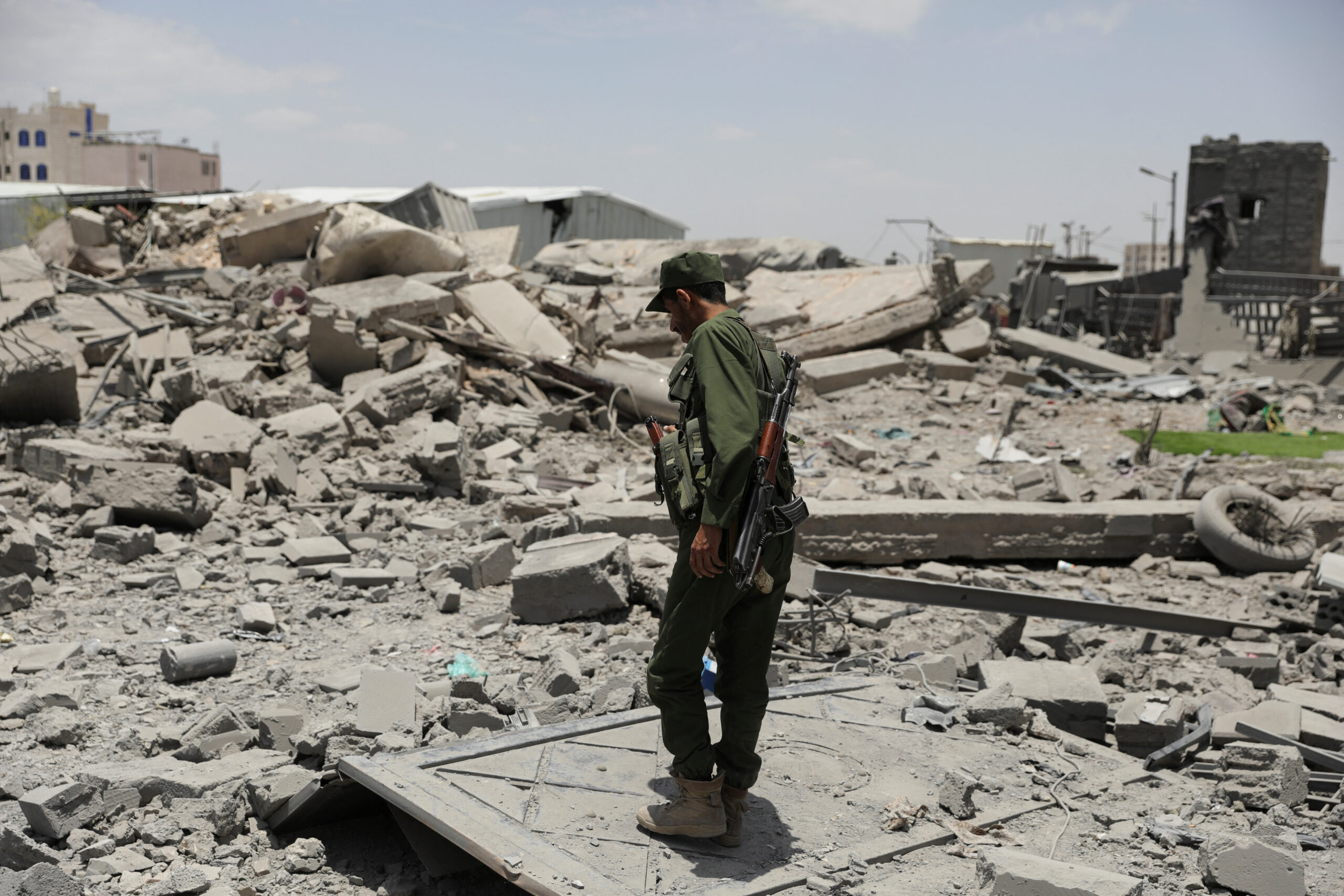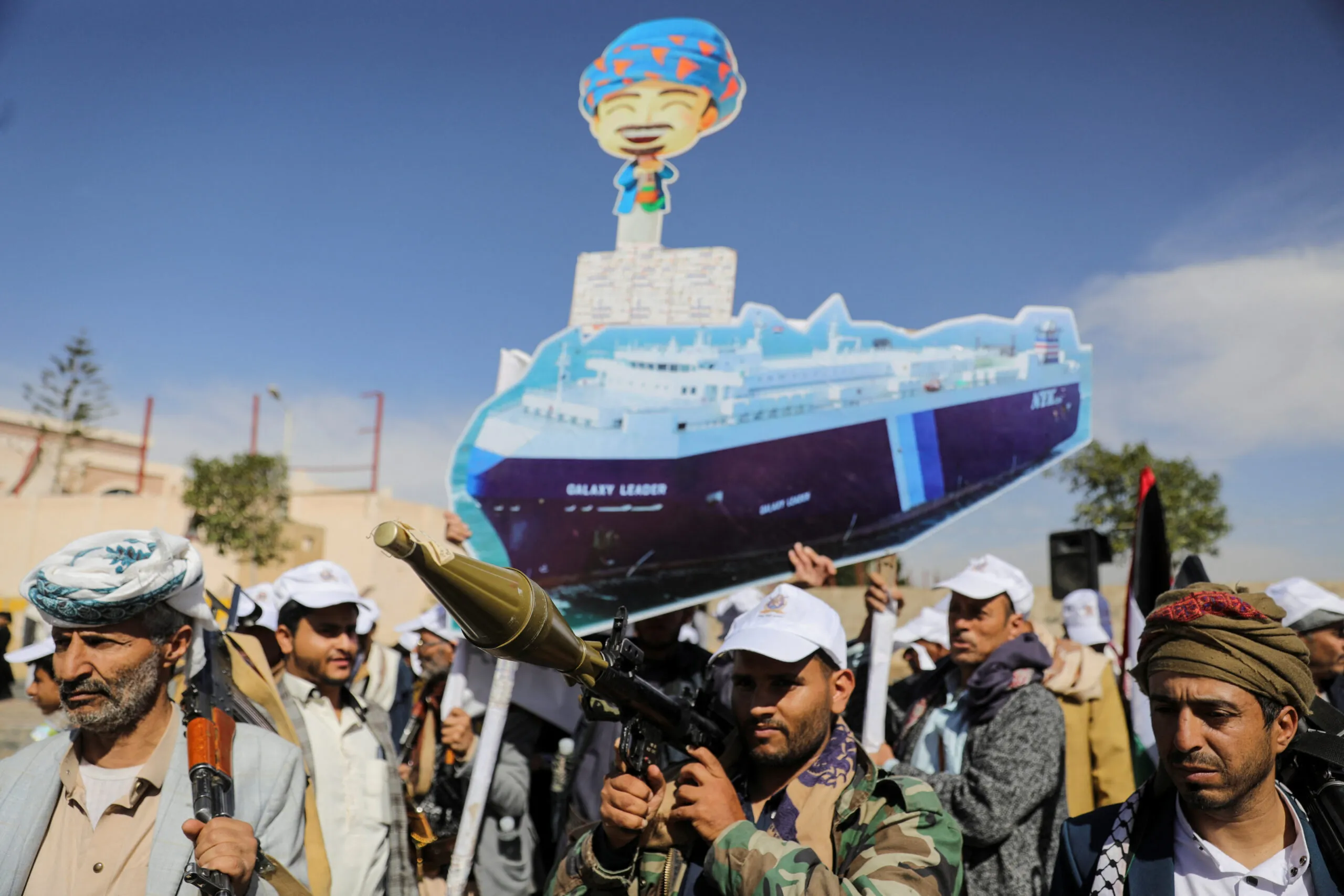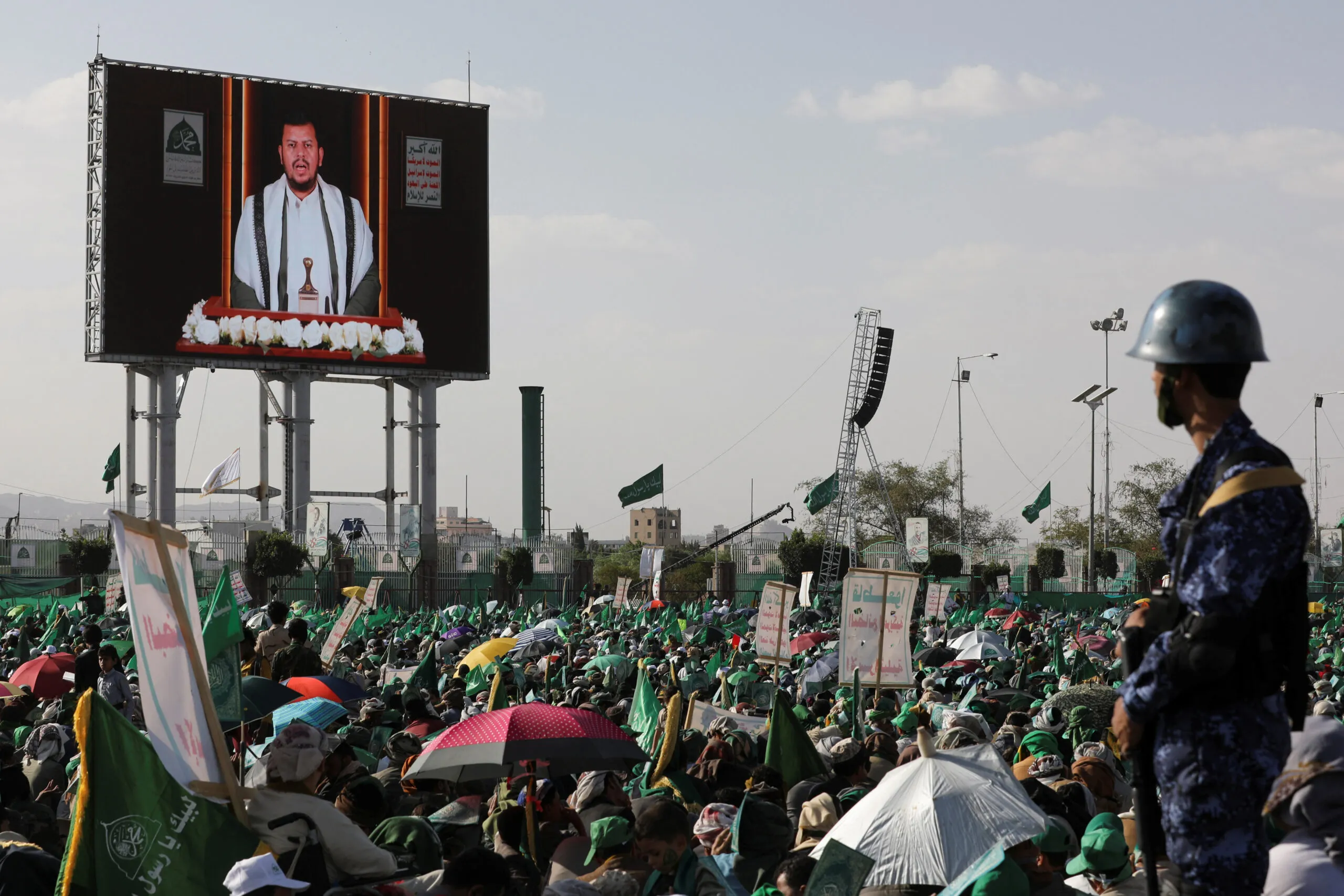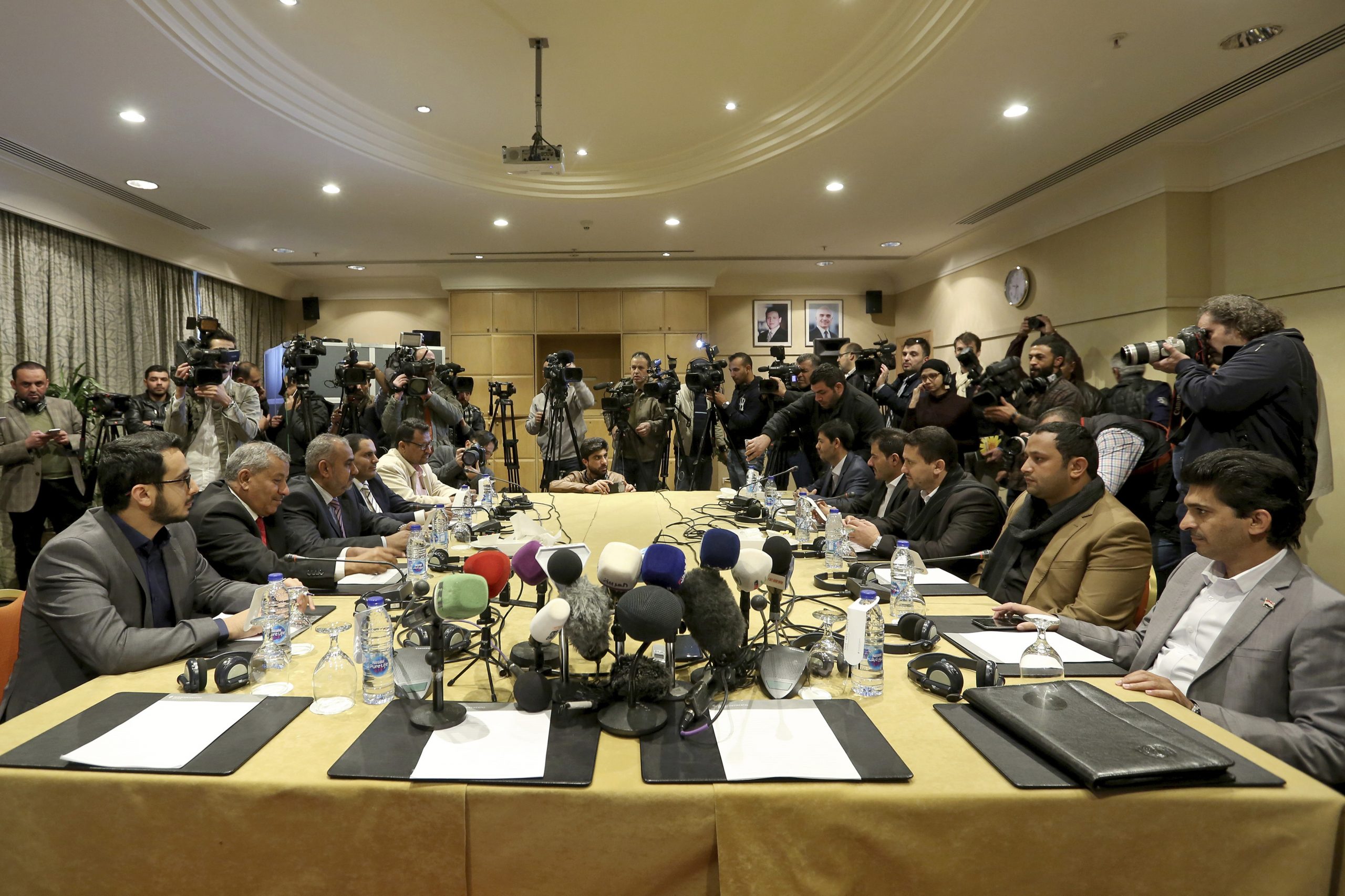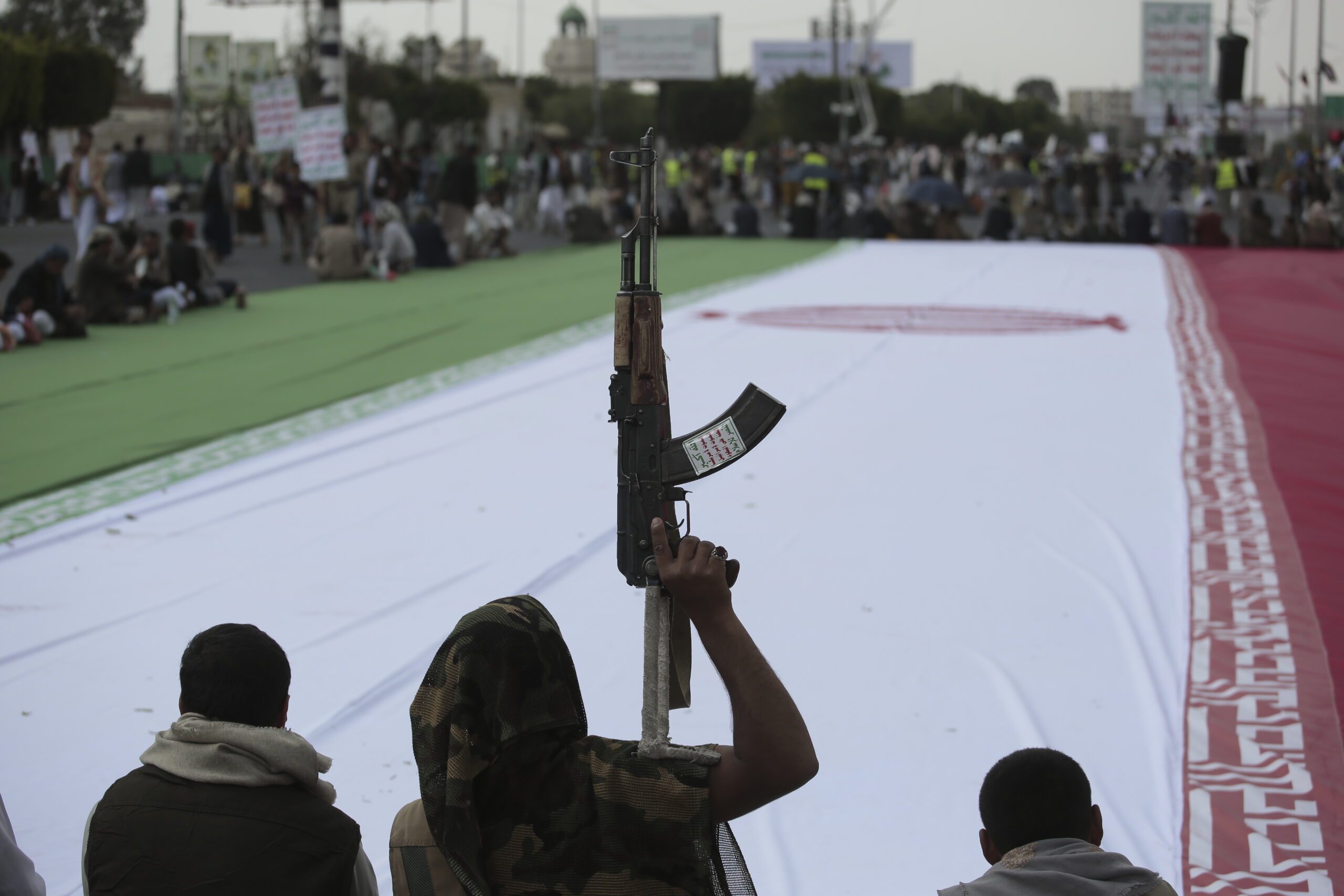
Perhaps the most surprising thing about the 12-day Israeli-Iranian conflict, in which the United States bombed three sites and then negotiated a cease-fire, is what didn’t happen. The Houthis, Iran’s most capable remaining regional ally, largely remained absent.
The Houthis fired a handful of missiles at Israel on June 14 and 15, and, then, on June 21, they pledged to attack the United States if it entered the conflict against Iran. Within hours the United States had struck three nuclear sites. The Houthi response: a statement condemning the attacks.
The lack of a direct Houthi response has confused scholars and analysts alike. After all, the Houthis responded quickly to Israel’s move into Gaza in October 2023, launching a lengthy campaign targeting commercial shipping in the Red Sea. This year, from March to May, the Houthis withstood 52 days of sustained U.S. bombing in Operation Rough Rider only to emerge from the cease-fire and continue firing missiles at Israel. As important as the Palestinian cause is to the Houthis, it is largely an ideological and rhetorical issue; Iranian support – particularly smuggled ballistic missile components – is what sustains the group and allows it to present a threat to commercial shipping and Israel. All of this begs a simple question: Why were the Houthis missing in action from the conflict?
There are seemingly three possible explanations: The Houthis may be currently unable to carry out strikes; they may be unwilling to carry out strikes; or they may be waiting to carry out strikes. Houthi desires have remained constant. The group, with its slogan: “Death to America, Death to Israel, Curses upon the Jews, Victory for Islam,” still wants to attack the United States and Israel. But in spite of that, and for reasons that aren’t clear to outside observers, the group did not enter the fight in any meaningful way.
Explanation #1: Unable to Carry Out Strikes
The explanation that the Houthis were unable to carry out strikes during the conflict argues that the U.S. bombing campaign in Operation Rough Rider was much more successful than the United States realized. Shortly after the conclusion of the campaign, an assessment from the U.S. intelligence community argued that the Houthis had suffered “some degradation” but would likely be able to reconstitute. Perhaps that assessment was wrong, and the nearly two months of sustained aerial bombardment did more damage to Houthi weapons depots and storage facilities than was apparent from the outside. During the operation, the United States carried out more than 1,100 strikes. Combine that with more than a year of Houthi strikes on commercial shipping and Israel, and it is possible that Houthi missile stores are much lower than assumed. The Houthis produce some of the materials domestically. Some, such as drones, they buy off the shelf. But for ballistic missile components, the Houthis are dependent on Iran to smuggle material into the country. If those stores were low, and they haven’t been replenished, it is possible that, while the Houthis might have wanted to join the fight, they simply didn’t have the munitions they need to attack the United States and Israel.
Explanation #2: Unwilling to Carry Out Strikes
The explanation that the Houthis were unwilling to carry out strikes argues that the Houthis saw how deeply Israel had penetrated Iran and how successful its initial campaign was – killing top Islamic Revolutionary Guard Corps commanders and nuclear scientists – that they fear for the group’s survival. As Elisabeth Kendall, a Yemen expert, told The Wall Street Journal about the Houthis: “They’ll probably be thinking that we should lie fairly low at the moment. We start maneuvering around, we give ourselves away, we reveal our locations.”
This idea was driven home on June 14 when Israel came close to assassinating Muhammad al-Ghamari, the Houthi’s military chief of staff, in a targeted strike. Details are still vague, but, according to sources in Yemen, it appears Ghamari was badly injured in the attack but survived, at least initially.
There are, however, a couple of holes in this theory. First, Israel has spent decades infiltrating Iran and laying the intelligence groundwork for its successful first few days. By comparison, the Houthis have been a much more recent and distant threat for Israel until the last couple of years, which would suggest a much more limited degree of penetration. Also, while Israel has only been attacking Iran for a couple of weeks, it has been conducting strikes against the Houthis for more than a year: If it had so successfully penetrated the group, it likely would have already utilized that intelligence. Second, and perhaps most important, the Houthis know how dependent they are upon Iran for their own survival. The Houthis need Iranian support and missile technology to be a regional player, and they are a group with regional ambitions.
Explanation #3: Waiting to Carry Out Strikes
The explanation that the Houthis were waiting to carry out strikes is seemingly the most plausible. The Houthis likely didn’t feel the freedom to freelance a response against Israel. Instead, they were looking to coordinate with Iran. But Israel’s successful decapitation strikes in the initial days of the campaign, and Supreme Leader Ayatollah Ali Khamenei’s retreat to a bunker (reportedly requiring communication through a trusted aide), made coordination much more difficult than it was in the past. In this scenario, the Houthis still had the munitions and the will to strike at the United States and Israel, they simply wanted to ensure that any strikes were in keeping with Iran’s retaliation strategy. The options ranged from a coordinated attempt to close the Red Sea and Strait of Hormuz to coordinated missile strikes on Israel to exhaust or overwhelm interceptors to a more asymmetric response of terrorist attacks.
This explanation – that the Houthis wanted to wait and coordinate their response with Iran – seems to fit the known facts best. Whereas the first explanation, that the Houthis were unable to carry out strikes, requires that the U.S. assessment of Operation Rough Rider was wildly off the mark, and the second explanation, that the Houthis were afraid, seems to cut against years of evidence that show the Houthis are willing to take on stronger adversaries.
Perhaps most important will be what comes next. On June 24, the Houthis said that the Israeli-Iranian cease-fire did not apply to the group. If the Houthis have sufficient munitions, it is likely that Iran will continue to leverage the group to press against Israel and the United States, which could give the Iranian regime time to reconstitute and reconsider its strategy given Iran’s poor performance in the short war and the weakening of its proxy network.
The views represented herein are the author's or speaker's own and do not necessarily reflect the views of AGSI, its staff, or its board of directors.


